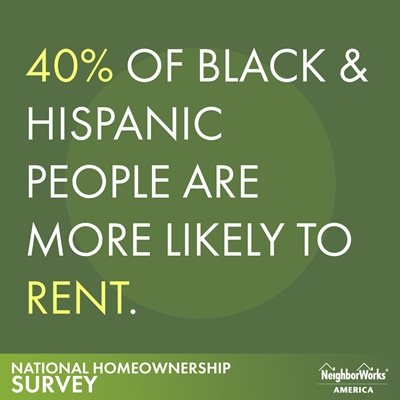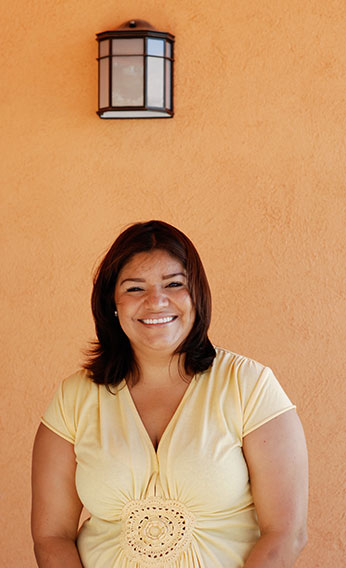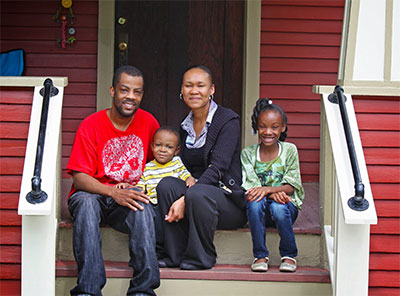 According to the results of NeighborWorks America's 2019 National Housing and Financial Capability Survey, minority families, particularly black and Hispanic families, miss out on valuable opportunities to buy homes because they lack the necessary financial planning skills and knowledge to become homeowners.
According to the results of NeighborWorks America's 2019 National Housing and Financial Capability Survey, minority families, particularly black and Hispanic families, miss out on valuable opportunities to buy homes because they lack the necessary financial planning skills and knowledge to become homeowners.
Let's face it: Buying a home can be intimidating. Three NeighborWorks organizations share their best practices and strategies for engaging minorities in the homeownership process by using translated materials, offering culturally-appropriate education classes, tailoring services and leveraging their partnerships in order to make homeownership more accessible.
Asian Americans for Equality
"We started [focusing on homeownership] more than a decade ago for the purpose of asset building," says Thomas Yu, Co-Director of Asian Americans for Equality (AAFE). "A lot of immigrants really ascribe to this American dream ideal, and so they want for the second generation to have a home of their own."With offices in New York City's Chinatown and Queens, AAFE is dedicated to enriching the lives of Asian Americans and all of those in need. While Asian Americans comprise their major constituent group, the organization serves a diverse population.
One of the first ways AAFE began to help move residents towards homeownership was by offering financial education. "We saw that a lot of our community, particularly Asian immigrants, were susceptible to predatory lenders and not knowing the market," says Yu.
AAFE began offering counseling and technical assistance around financial planning, and started a down payment assistance program to assist their clients in attaining traditional 30-year fixed mortgages. Providing education materials in various languages and connecting clients to fluent speakers of their native languages has increased the efficacy of AAFE's education and outreach programs as well.
AAFE partnered with HUD to translate materials into Chinese, and they have worked with their banking partners across New York City to encourage them to have staff members who speak different languages, including Chinese, Urdu, Vietnamese, Korean and Spanish.
For organizations looking to serve more minorities, Yu emphasizes the importance of understanding and respecting how culture may impact perceptions of homeownership. "You have to think about how cultural history might affect how you do your project," says Yu. "Sometimes it can be something so obscure that you can only learn it from talking with people." Yu adds that addressing cultural beliefs and values appropriately can greatly improve the success of the program.
The Housing Partnership
 The Housing Partnership provides homebuyer education and programs in Dover, New Jersey, about 30 miles west of New York City.
The Housing Partnership provides homebuyer education and programs in Dover, New Jersey, about 30 miles west of New York City. The Housing Partnership serves a diverse population, of which a large percentage is Hispanic. Half of the six-person staff speaks Spanish, delivers workshops for Spanish speakers, and provides translated materials and applications.
The Housing Partnership leverages its banking partnerships to address clients' needs. "We have partnered with our banks to make sure there are programs that are available [for our clients], and that they have mortgage reps that speak Spanish so there are easier channels of communication," says Executive Director Jessica Padilla-Gonzalez.
Strong partnerships also help to keep their clients informed about affordable opportunities.
"We partner with the housing authorities to make sure that people residing in affordable rentals know about homeownership opportunities, whether they be the affordable homes that are being constructed through Habitat or a developer," says Padilla-Gonzalez. "We send this information out to everyone and then work in partnership with them to provide savings programs for their renters and, again, education facilitates that process. We offer discounted classes to them, offer them for free. We do classes onsite for them, in English or in Spanish."
For organizations hoping to engage minorities, immigrants or other underrepresented populations, Padilla-Gonzalez offers some advice: Meet people where they are on the homeownership journey, build trust and show them that your organization is honest. "It takes time," she says.
Neighborhood Housing Services of South Florida
 "A lot of our clients are coming to us with the desire to own," says Kimberly Henderson, President and CEO of Neighborhood Housing Services of South Florida (NHSSF), which serves the Miami-Dade and Broward County areas, whose communities are majority minority.
"A lot of our clients are coming to us with the desire to own," says Kimberly Henderson, President and CEO of Neighborhood Housing Services of South Florida (NHSSF), which serves the Miami-Dade and Broward County areas, whose communities are majority minority.Housing prices are high, and affordable real estate is scarce, but homeownership is achievable. One strategy NHSSF employs is helping clients reimagine the dream. For example, rather than searching for a single-family home, NHSSF encourages clients to explore other options such as buying a condo or co-op, or looking at land trusts. Providing education about how these types of ownership work can make a huge difference for a hopeful family.
NHSSF also offers credit counseling and financial literacy education. Capital One Bank has made a counselor available who comes onsite at NHSSF, meets with clients, and when necessary provides specific strategies to help clients to improve their credit.
Particularly when working in communities with large immigrant populations, Henderson stresses the importance of language access. NHSSF provides materials in English, Creole and Spanish. Workshops are available in English or Spanish, and one-on-one counseling is available in Creole.
"I think it has to be in their language, and I think it's helpful when you have people from those communities delivering the training," says Henderson. "I don't think it would be possible for us to serve our [clients] without having people on our staff that are representative of those communities."
Minority homeownership series:
- Culturally-specific classes and resources can improve minority homeownership
- LIFT expands minority homeownership opportunities
- Education can help lift levels of black homeownership

